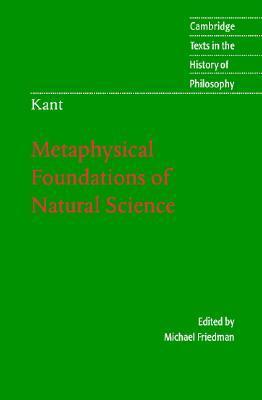What do you think?
Rate this book


160 pages, Paperback
First published January 1, 1786
“Kantian anthropology is empirical in a double sense. On the one hand, the characterization of the soul's faculties moves within the framework of the knowledge that general experience offers of man. Then, however, the soul faculties themselves, e.g. the power of imagination, are considered in advance and solely on the basis that they and how they relate to the experienceable being. The productive power of imagination, which anthropology deals with, always concerns only the forming of views of empirically possible or impossible objects.” Kant and the Problem of Metaphysics, Heidegger, 1910